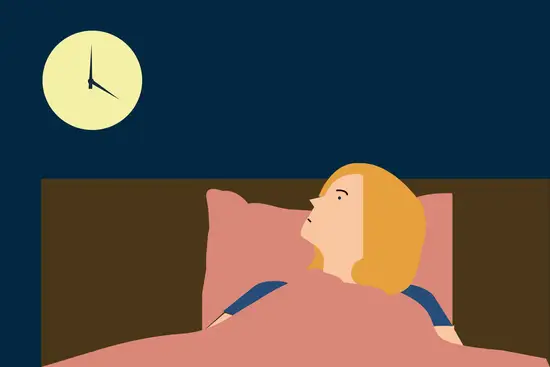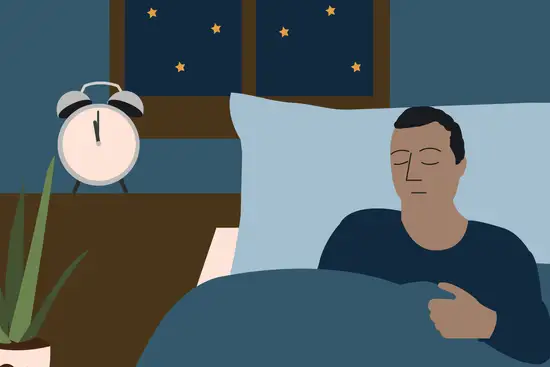Key points
How much sleep are you getting each night? Do you wake refreshed and ready for the day or do you feel like you always need a little more sleep? Sleep deprivation is recognised as a growing problem around the world, so we’ve packed this article with everything you need to know about what it is and how to tackle it.
We’ll discuss:
- why people across the globe just aren’t getting enough sleep
- how to recognise if you’re sleep deprived
- the dangers sleep deprivation poses for your mental and physical wellbeing
- simple methods you can try to increase how much sleep you’re getting
- what to do if your sleep deprivation is part of a bigger sleep problem.
Are you getting enough sleep?
When you’re trying to get by on insufficient sleep, daily life can be a real chore. It can feel like everyone around you has more energy and you’re the only one dragging yourself through the day, dreaming about bedtime.
The reality is actually very different and you’re definitely not alone! Figures vary, but recent surveys hint that up to three quarters of UK residents could be getting by on too little sleep. Multiple studies are revealing that sleep deprivation is a problem the world over.1 2
According to the American Association of Sleep Medicine (AASM), adults need at least seven hours of sleep per night and somewhere in the range of seven to nine hours.3 Yet recent figures suggest that, globally, we’re sleeping for an average of just under seven hours most nights.4
Sleep deprivation has become a worldwide problem and too many of us regularly don’t get the amount of sleep we need to be at our best. In fact a recent global study identified that only 55% of adults are satisfied with their sleep.4
We’re going to look at why people across the world are now sleeping so little. We’ll explore what’s known about the causes of sleep deprivation, the major effects it can have on your health and the steps you can take to make sure you’re getting the sleep you need.
Sleep deprivation is often confused with insomnia
If you’re having difficulty getting to sleep, staying asleep or are waking too early in the morning you’ll likely know first-hand the feeling of not getting enough sleep. If you’re giving yourself ample time to sleep, but still aren’t able to sleep, you may have insomnia. Why not take our short sleep questionnaire to discover how our sleep improvement programme can help you to get the sleep you deserve?
What is sleep deprivation?
Put simply, sleep deprivation is when you don’t get the sleep you need. It can be caused by not getting the amount of sleep you need, not getting the quality of sleep that you need or a combination of the two.
Common reasons why you might not get enough sleep at night, can include:
- you might go to bed late and wake early, so your window for sleep is too short
- it takes you a long time to drop off to sleep at night
- you wake up several times in the night and it takes you a while to get back to sleep
- you go to bed at a reasonable hour but wake too early in the morning.
The quality of your sleep can be affected in the above scenarios too, especially if you:
- wake multiple times during the night
- drink too much caffeine or alcohol
- take certain medications
- snore or have a sleep disorder such as insomnia, sleep apnea or restless legs syndrome
- are experiencing mental health problems.
So, for example, you might not get the amount of sleep you need if you go to bed really late and wake very early. Your sleep quality might be below par if you drink alcohol or coffee too close to bedtime.
These are only two examples: plenty of other factors can cause you to be sleep deprived and we’ll look at those in more detail in the next section. The point we’re making is that both how long and how well you sleep can contribute to you being sleep deprived.
Sleep deprivation can be a short-term thing (acute sleep deprivation) or can be a problem you experience long-term (chronic sleep deprivation).
Acute sleep deprivation describes when you don’t sleep or don’t get enough sleep for a maximum of one to two days.5 Sleep deprivation is classed as chronic when it persists for three or more months.6
What causes sleep deprivation?
This one’s pretty easy to answer: sleep deprivation is caused by not getting enough sleep! But what causes you to not get enough sleep is another matter…
Many factors can lead to you being sleep deprived, ranging from simple reasons like staying up too late each night watching Netflix to more complex situations where your sleep deprivation results from an illness or medical condition interfering with your sleep.
Broadly speaking, we can group the causes of sleep deprivation into lifestyle choices and those related to health. Lifestyle choices include:
- working long hours
- staying up too late in the evening
- poor sleep hygiene
- using electronic devices close to bedtime
- problems with your sleeping environment.
Sleep deprivation arising from factors that affect your health can include:
- having a sleep disorder such as sleep apnea, insomnia, narcolepsy or restless legs syndrome
- illnesses and medical conditions such as depression, cancer, chronic pain, Alzheimer’s disease (and many more)
- taking certain medications.
Sleep deprivation that’s resulting from a health problem should be discussed with your medical provider. They should be able to advise you on what steps you can take to improve your sleep.
If you’re sleep deprived because of your lifestyle choices, this can be easier to resolve and we’re going to discuss some simple changes you can make to improve your sleep a little further on.
But first, let’s have a quick look at why being sleep deprived has become the new norm for so many of us and how this can spell disaster in the long-run for your health and wellbeing.

Why are so many people sleep deprived worldwide?
Statistics on sleep deprivation are pretty bleak and it’s easy to paint a mental image of people around the world shambling about as sleep deprived zombies.
So why are we getting so little sleep?
This is a question with many potential answers. Plenty of factors contribute to the global problem of sleep deprivation and so the reason why you’re sleep deprived will likely be different to that of the next person.
We’ve identified three likely contributors to why we’re not getting enough sleep and we’ll look at each of them in a little more detail now.
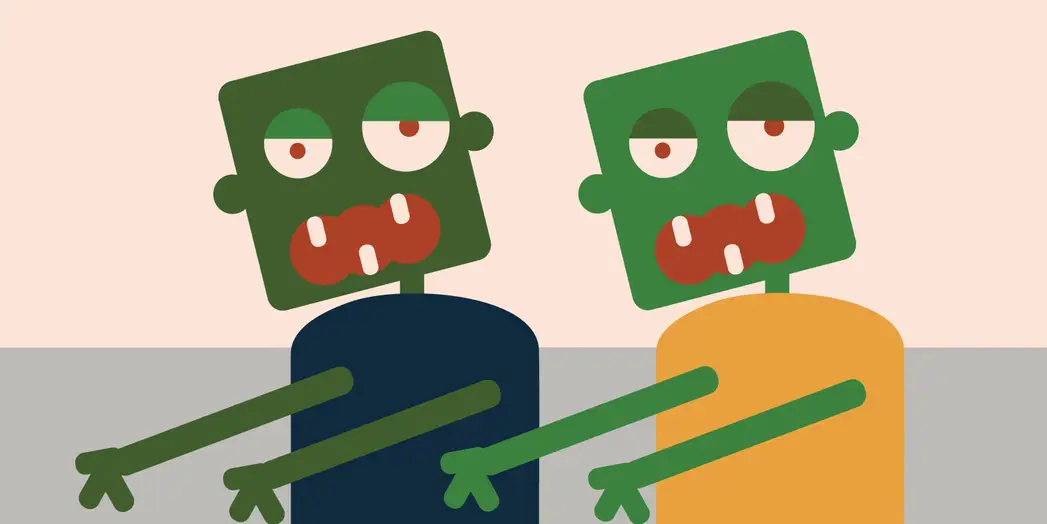
1. Modern life
Our lives are busy. Many of us work long hours, often outside of the 9 to 5, do overtime or have a job that involves shift work.
Sometimes work can encroach into your evenings and the constant buzz of messages, alerts and emails from your smartphone, laptop or tablet can blur the line between work and personal time.
The wonders of technology also make it easy to work across time-zones. So a meeting between colleagues in the USA and Europe might mean you end up working at a time when you’d much rather be relaxing.
Some researchers point to modern lighting as a contributing factor to the increase of sleep deprivation. Studies show levels of sleep deprivation have increased as the use of artificial lights increases across the world.7
This makes sense when you consider that we often get up before it’s light outside and stay up way beyond darkness falling.
You probably don’t give it a second thought, but the wonders of electric lighting are behind your ability to work, enjoy your leisure activities and keep your home bright at all hours of the day and night.
Unfortunately for your sleep, being exposed constantly to bright lights is not ideal. A key sleep hormone, melatonin, is regulated by light and artificial light can disrupt its regular cycle. Levels of melatonin naturally increase as darkness falls and this helps you to feel sleepy by bedtime.
But melatonin is suppressed by daylight, so the bright lights in your home/office (or anywhere else you happen to be after darkness has fallen) can interfere with melatonin production and the end result can be disruption to your sleep.
And it’s not just lightbulbs that can confuse your body’s natural rhythms. The screens of our smartphones, tablets and TVs all emit light that can disrupt melatonin regulation.
So after a long day in a brightly-lit workplace, settling down on your sofa to watch a movie or catching up on social media on your smartphone might not be the relaxing activities they seem.
While our modern lives may appear to be filled with obstacles that get in the way of good sleep, we’re not suggesting it’s time to go back to living by candle-light, giving up technology or going to bed at dusk.
But understanding how light can interfere with sleep can help you identify if you’re getting too much light exposure and enable you to reduce exposure in the evening.
Recognising that there’s a good and bad time for your electronic devices should enable you to limit when you’re using them. It may even help you to disconnect and improve your work/life balance too.
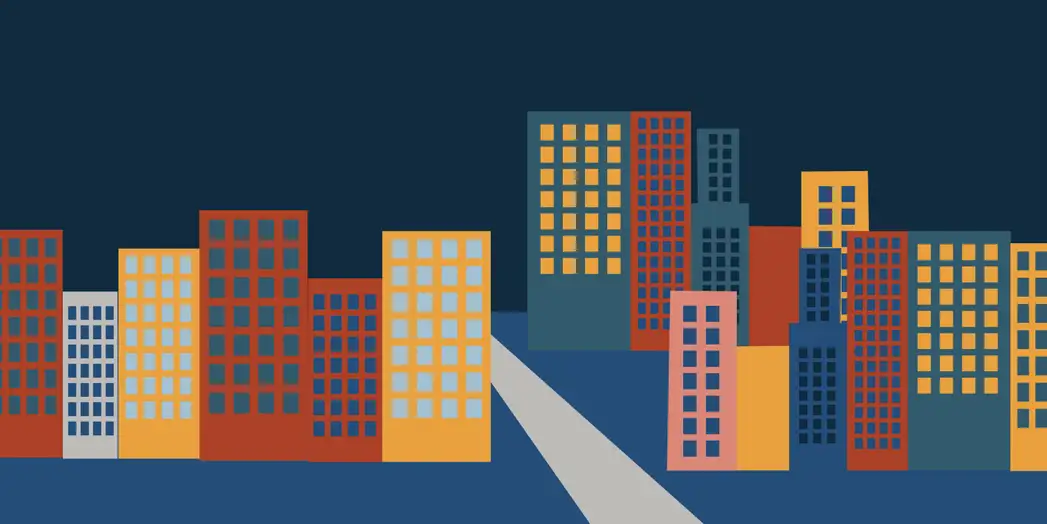
2. Being mildly sleep deprived is easy to ignore
So why are so many of us living with the effects of sleep deprivation? How come people aren’t doing more to improve their sleep, even when they know they’re not getting enough?
Part of the problem lies in the fact that being a little sleep deprived doesn’t stop you from functioning, so at a low level, it can be easy to ignore or overlook.
Sleep deprivation stops you from functioning well and you definitely won’t be at your best when you’re not fully rested, but you’ll likely be able to get through your daily life without too many problems.
You might drag yourself through your workday or make promises that you’ll catch up on sleep at the weekend. Maybe you find it hard to concentrate at work, don’t feel mentally your best or lack the energy and motivation to exercise like you’d planned.
These signs of sleep deprivation are easy to push to one side and ignore, which is probably why a lot of people are getting by on insufficient sleep. Mild sleep deprivation doesn’t stop you in your tracks, it just hinders you from being at your best both mentally and physically.
If you’re chronically sleep deprived, you’re more likely to realise you need to sleep more. Maybe you don’t know where to start to improve your sleep, or you might feel like there’s just not enough time left in your day to get the sleep you need.
Life can often get so busy that other things take priority over your sleep. An important work deadline may feel more important than getting a good night’s sleep. Or maybe you know you’re bone-tired but this is the only time you can schedule to catch up with friends.
You might find yourself thinking, “It’s only sleep after all. I can make up that sleep debt when things are less hectic. Just one more late night won’t hurt… Sleep’s not that important, is it..?”
Which brings us nicely to our third point…
3. We don’t appreciate that good sleep is crucial for our health and wellbeing
Taking care of our sleep is something that we’re probably all guilty of overlooking from time to time. Yet your sleep is incredibly important for keeping your mind and body functioning at their best.
We’ve talked about the obvious symptoms of sleep deprivation already and you’re probably well-aware of how you feel when you don’t get enough sleep. But there are many effects of sleep deprivation that aren’t immediately obvious.
Countless studies have shown that sleep deprivation can increase the risk of many chronic conditions, such as diabetes and cancer. It affects your brain function, how you process emotions and can lead to mental health problems.
It even shapes your weight, appetite, food cravings and risk of developing obesity. You might see adverts for the newest weight-loss regime, but it’s less likely you’ve heard that good sleep can be key to controlling your weight.
We don’t necessarily make the link between our health issues and sleep and that’s a big problem. For example, imagine you’ve decided now’s the time to make a commitment to yourself to get in better shape. What do you plan on changing?
Undoubtably, you’ll decide to improve your diet, eat more fruit and veg, cut back on the sugary, fatty foods. You’ll likely realise that exercise is also important and may plan to add some new sports into your routine.
But you’re much less likely to add ‘improve my sleep’ to the list, even though getting enough, good-quality sleep is crucial here. You can eat as healthily as you like and start exercising every day but if your sleep’s poor you’re holding yourself back, wasting effort and might not see the results you want.
So a big problem is that society as a whole fails to appreciate the value of sleep. But why is this?
Studies often put it down to factors such as a lack of emphasis on the value of sleep being on school curriculums. Or the fact that even medical professionals often aren’t taught how crucial sleep is for health, so they in turn don’t question your sleep when you go to them for medical advice.
Yet it’s a proven fact that sleep is one of the four cornerstones of your health, along with diet, exercise and taking care of your mental wellbeing.
And because we undervalue the power of sleep, we tend to think it’s something that can be scrimped on and caught up on at a later date. Which is definitely not the case. Good sleep night-in, night-out is key to maintaining all areas of your mental and physical well-being.
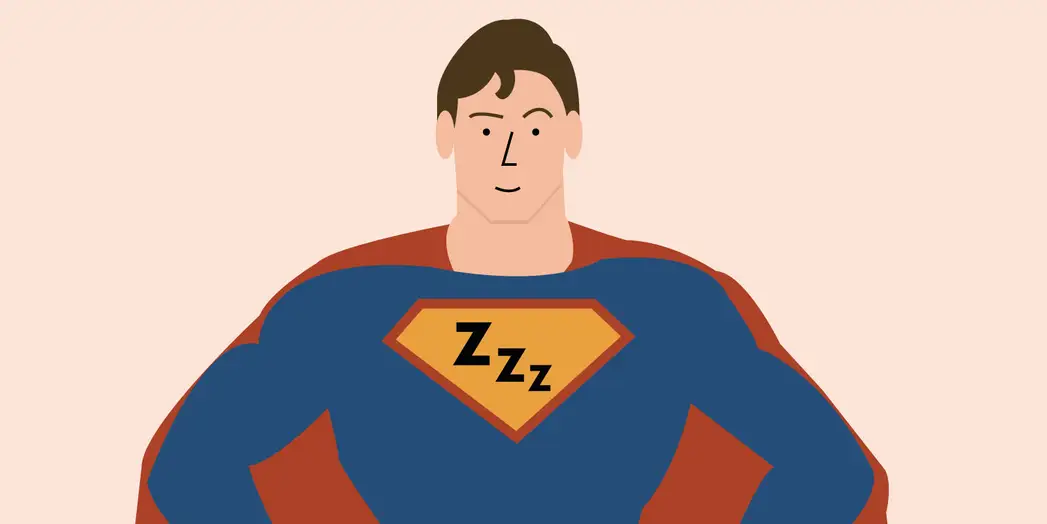
Symptoms of sleep deprivation
What you experience when sleep deprived will depend on how long you’ve been getting by on too little sleep. After a night or two of poor sleep, you’ll likely experience sleep deprivation symptoms such as:
- feeling fatigued or excessively sleepy during the day
- irritability or increased levels of stress, anxiety and depression
- difficulty concentrating, remembering things or making decisions
- yawning often
- brain fog or slowed thinking
- low energy and reduced physical strength.
We can probably all relate to feeling some of the above symptoms after a bad night or two of sleep. During the early stages of sleep deprivation, you won’t feel at your best but you’ll probably still be able to get through the day.
You could even be living with some of these symptoms without actually realising that the way you’re feeling could be caused by your lack of sleep.
For example, you might be finding work difficult and question your ability to cope with complex tasks. Your self-doubt may make you believe your brain’s just not clever enough, when the truth is more that your brain’s simply not rested enough to perform at its best.
A good night’s sleep could be what’s coming between you and the ability to get your tasks done. Or you could be experiencing low mood but put it down to the stresses and strains of your life when in fact getting in a little more sleep could be just what you need to blow those blues away.
Because the symptoms of sleep deprivation are quite broad they can be easy to attribute to other things. However, as sleep deprivation continues beyond a day or two, the effects intensify.
Without enough sleep, your body is functioning under stress. You’ll likely find that it gets harder to think clearly. You’ll be increasingly irritable, your energy levels will get lower and lower, you’ll feel fatigued and crave sleep.
The longer you’re sleep deprived for, the more intense the effects of sleep deprivation become. Symptoms will all depend on whether you’re not sleeping at all (this is called total sleep deprivation) or you’re getting by on insufficient sleep (partial sleep deprivation).
You can start to experience hallucinations, psychosis and other psychological effects within 72 hours of total sleep deprivation.8 The same effects can also become apparent if you’re experiencing partial sleep deprivation long-term (chronic sleep deprivation).
When your sleep deprivation is chronic, you’re at increased risk of more serious effects to your health. Chronic sleep deprivation can lead to:
- reduced immune function so you experience more infections
- weight gain and obesity
- increased risk of mental illnesses
- greater risk of health issues such as stroke, type two diabetes, cancer and heart attack
- higher risk of personal accidents, work accidents and car accidents.9
Sleep deprivation stops your mind and body from working at their best
Imagine a machine that has both mechanical and electrical parts. It runs during the day and then is in standby mode at night. During the night, essential maintenance is carried out. Mechanics check over and fix anything mechanical that needs attention.
Electrical engineers check the electrical circuits, run updates, assess data and store it in the machine’s memory. This happens every night without fail and the machine powers up again each morning, well-maintained and ready to run throughout the day.
Now imagine that the machine has to run overtime. The mechanics and engineers have to cram in their servicing and checks during a much shorter window of time. There’s less time to carry out essential repairs, so not everything gets done.
Data analysis falls behind, repairs are rushed and there’s just not enough time to carry out everything needed for the machine to run at its best. But the machine still has to power up and work every day just the same.
So the machine starts to experience problems. It’s not running as smoothly, parts start to show wear, the computer system slows down. The maintenance teams can’t keep up with the repairs and fixes each night. Eventually, without the care the machine needs to run perfectly, something breaks.

So what’s this got to do with you and your sleep?
The human body works in a very similar way. You are the machine. Every night during your sleep, your own personal maintenance crews are hard at work fixing your sore muscles, cleaning away toxins that have built up during the day and preparing your body for the day ahead.
In your brain, your machine’s computer, everything you’ve experienced during the day is being processed, understood and formed into memories. You might be sound asleep, but your mind and body are a hive of activity in preparation for what’s in store the next day.
And just as the machine falls into disrepair when there’s not enough downtime for maintenance, so can you. Without adequate sleep, your body doesn’t have time to fix all your aching muscles, your brain doesn’t have time to process your emotions and memories.
You wake up mentally and physically unprepared for the day ahead.
And when you continue to get by on insufficient sleep, day in, day out, the end result is the same for you and the machine: something breaks.
It could be your mental health that’s affected. You might notice your mood is dipping. Depression and anxiety might appear or worsen. Or your immune system could take a hit: you’re suddenly catching every little bug that goes around.
There’s an abundance of studies that show links between lack of sleep and increased risk of numerous diseases and illnesses, yet the connection between our sleep and health fails to receive the importance it deserves.
We’re going to explore just how much your sleep deprivation can impact upon your life, health and wellbeing. You might be in for some shocks.
Sleep deprivation can seriously affect your health
If you still need some convincing about the impact sleep deprivation can have on your body, look no further. Trying to get by on insufficient sleep affects every system in your body, so here’s a quick roundup of what studies have shown us about sleep deprivation’s impact on your mind and body.
Your risk of cardiovascular disease increases when you’re sleep deprived
As you sleep, your blood pressure naturally drops. But when you don’t get enough sleep, your blood pressure can stay elevated during the night. When your blood pressure remains raised each night due to poor sleep, you can develop high blood pressure (hypertension).
Studies show that sleep deprivation increases blood pressure and is linked to increased risk of developing coronary heart disease (CHD).10 11 CHD is caused by a build-up of plaques in your arteries, which cause them to harden and narrow.
This plaque build-up is called atherosclerosis and (you’ve probably already guessed it) sleep deprivation has also been shown to contribute to this process.12
Short sleep duration has also been shown to be a predictor of stroke.13 High blood pressure is the biggest risk factor for stroke, plus buildup of plaques in the arteries may additionally increase the risk too.
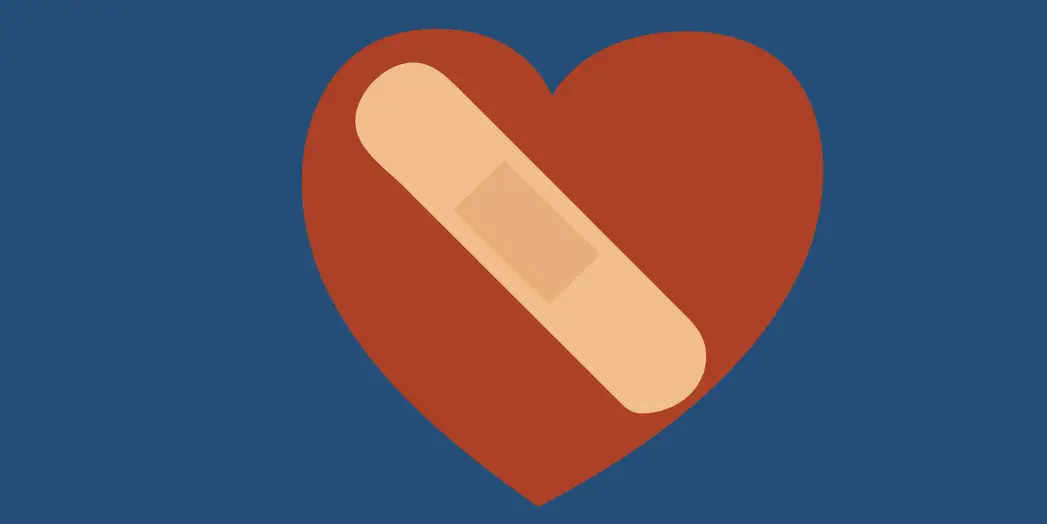
Sleep deprivation affects your immune system
Your immune system is your body’s defence network and during sleep is when this system strengthens itself. Whilst you sleep, your body is busy repairing muscles and carrying out housekeeping tasks to remove toxins and waste.
Levels of immune molecules naturally rise during the night in order to carry out their roles in these tasks. What this means is that while you sleep, your body has a higher level of inflammation while you sleep than during the day.11
When you’re sleeping well, levels of different cells of the immune system rise and fall throughout the night in regular patterns. As you get closer to waking, your temporary state of higher inflammation ceases and your immune system goes back to its normal daily state.
But what happens to your immune system when you’re sleep deprived?
Firstly, when you’re sleep deprived your immune system doesn’t get the time it needs to recharge overnight. So without adequate sleep, you might find that you catch every bug that’s going around. Or you may notice that it takes longer for you to recover from illness or injury.
Secondly, markers of inflammation in the body are present at higher levels when you’re sleep deprived. The higher levels of inflammation when you’re sleeping don’t diminish as they should when you don’t get enough sleep.
This results in immune molecules remaining too high. Which means that your body is in a state of inflammation during sleep deprivation.14 And this is definitely not good for your body.
Acute inflammation is a natural, short-lived response that happens when you cut yourself or have a cold. Your immune response ramps up to deal with the injury or illness and then settles down again once the issue is dealt with.
Chronic inflammation occurs when the immune response stays in fight mode when there’s no threat to deal with. This is what chronic sleep deprivation can bring about. When this happens, your body’s defences can start to attack your own healthy cells.15
Studies have shown that chronic inflammation is associated with development of inflammatory diseases such as heart disease, cancer, diabetes, asthma, arthritis and bowel diseases like Crohn’s disease and ulcerative colitis.16
Chronic sleep deprivation may increase your risk of cancer
We just touched on the fact that sleep deprivation can lead to chronic inflammation and this can lead to development of cancer. Shockingly, one study has revealed that sleeping for less than six hours a day increases the risk of developing cancer by over 40%.17
Yet not all studies agree, with some studies finding no link between sleep duration and cancer.18 It might be that sleep deprivation increases the risk of certain cancers more than others. For instance, short sleep duration has been linked to increased risk of prostate, breast and colorectal cancer.19 20 21
Your weight and metabolism are affected by sleep deprivation
When you’re sleep deprived, you’re less likely to have the energy and motivation to exercise. This can lead to weight gain. But the links between insufficient sleep and your weight go further than this.
Sleep deprivation affects the normal function of hormones involved in regulating your weight. Ghrelin is a hormone that controls your hunger and leptin controls how full you feel.
When you’re sleep deprived, leptin levels decrease, making you feel less full. At the same time, ghrelin levels increase, making you feel hungrier.7 The net result here is that sleep deprivation leads you to eat more.
Studies have shown that people who regularly sleep for less than seven hours per night are more likely to have a higher body mass index (BMI) and develop obesity than people who sleep for longer.22
In fact, a huge study looking at over half a million participants found that losing just one hour of sleep per day is associated with a gain in BMI. In their example, a single hour of sleep loss for a person of 178cm in height could equate to a weight gain of 1.4kg (3.1lbs) over time.23
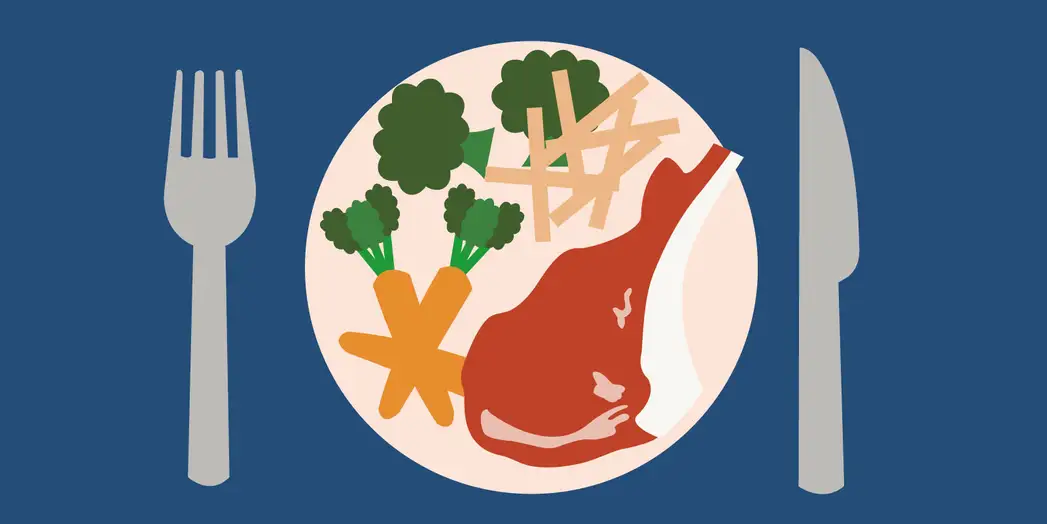
Sleep deprivation increases your risk of developing type 2 diabetes
Another hormone that is affected by sleep deprivation is insulin. This hormone regulates your blood sugar levels. It signals to your liver, muscles and fat cells to take up glucose when levels are high in the blood.
In a sleep deprived state, your body’s sensitivity to insulin can be reduced. This means that your body doesn’t respond to insulin’s signals that glucose needs to be removed from the blood.
To combat this, your body produces more insulin. Over time, the increased need for more and more insulin outstrips your body’s ability to produce it and this results in high blood sugar levels and type 2 diabetes.24
Sleep deprivation affects how your brain works
We’ve already mentioned how sleep is crucial for your brain to make sense of everything you’ve experienced during the day, and it’s also the time when your brain flushes out toxins that have accumulated over this time.
When you don’t get enough sleep, your brain doesn’t get adequate time to process feelings and emotions from the day and your memories aren’t consolidated as they should be. The end result is that you don’t wake up feeling mentally refreshed.
Sleep deprivation affects all areas of brain function, including:
- memory
- the ability to process information
- creative thinking
- decision-making skills
- reaction times
- risk-taking.25 26 27
Sleep deprivation can play havoc with your feelings too, making you feel irritable, emotional or moody. It can also lead to you experiencing anxiety, stress or depression28 and can worsen existing mental health problems.
In the long-term, sleep deprivation can lead to cognitive decline. Inadequate sleep has been linked to the development of neurodegenerative diseases such as dementia, Alzheimer’s disease and Parkinson’s disease.29
Remember the housekeeping that goes on during your sleep? That’s when proteins involved in the development of diseases such as Alzheimer’s and Parkinson’s are swept away and removed.
When you don’t get the sleep you need, clearing away unwanted proteins such as these can be incomplete and they can stick around, accumulate and cause problems.
One research finding that’s particularly eye-opening is the fact that around 15% of Alzheimer’s disease cases may be attributed to sleep problems.30
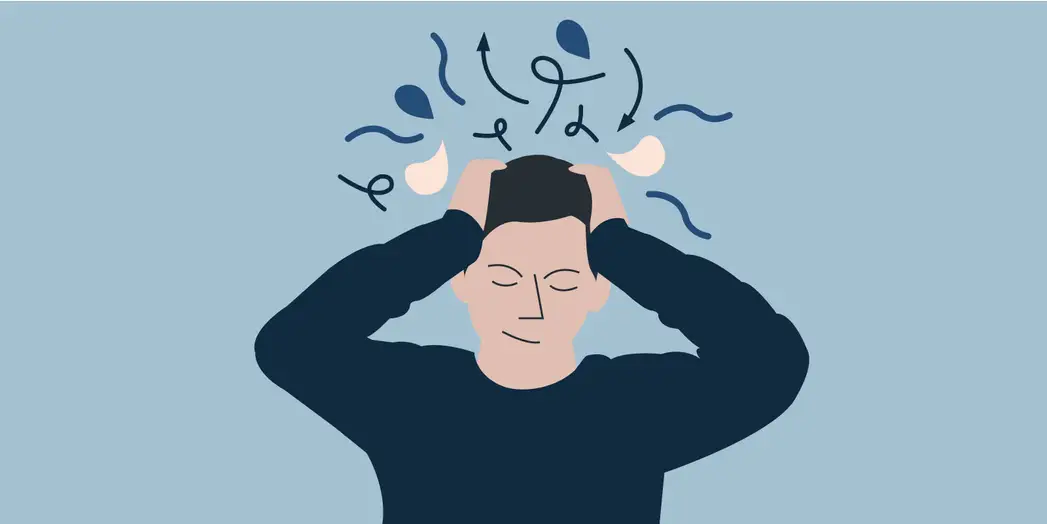
Can sleep deprivation kill you?
Not getting enough sleep for a night or two isn’t going to kill you, but being chronically sleep deprived can increase your risk of dying early.31
When researchers combined the results of multiple studies on sleep and mortality they found that people who slept for less than six hours a night were ten times more likely to die early than those who slept for the recommended seven to nine hours each night.32
As we’ve covered in the previous sections, sleep deprivation can increase your risk of developing many major health conditions. Whilst being sleep deprived might not kill you directly, the downstream effects of long-term sleep deprivation may lead to an early grave.
Plus, your risk of accidents increases when you’re sleep deprived.33 So you’re more likely to crash your car, fall off a ladder or be involved in other types of accident when you’re not getting the sleep you need.
Thankfully, sleep deprivation is treatable and you can reverse many of the negative effects of being chronically sleep deprived by improving your sleep. Let’s explore this in more detail now.
Treatment for sleep deprivation
The best way to treat your sleep deprivation will depend on identifying what’s causing you to be sleep deprived. If you’ve got a medical condition that’s stopping you from sleeping, your first step should be to discuss it with your healthcare provider.
If your sleep deprivation stems from your lifestyle, there’re plenty of self-care approaches you can try that can have a big impact on your sleep. Good sleep habits can really boost your sleep, and they’re not difficult to implement.
We’ve put together our simple top ten tips to banish your sleep deprivation. They’re all things that you can implement yourself and they’re all tried and tested ways to improve sleep.
1. Fix your bedtime
If possible, go to bed and wake up at the same time each day. Weekends are no exception — your body and mind thrive off routine, so a consistent bedtime can be a great start to getting your sleep on track.
2. Give yourself time to wind-down each evening
After a busy day, you need some time to decompress and unwind before bed. A simple wind-down routine before bed can help to prepare your body and mind for sleep. So read a book, take a nice bath, listen to some relaxing music.
It doesn’t matter what you choose as long as it helps you to relax. If you follow the same routine each night before bed, your brain will form a connection between those activities and sleep following them. Stick to it!
3. Cut back on stimulants
Coffee, alcohol and nicotine can all interfere with sleep. If you’re sleeping badly or not getting enough sleep, maybe it’s time to cut back on these in the run-up to bedtime, or think about cutting them out entirely.
4. Upgrade your sleep space
Your bedroom plays a huge role in how well you sleep. When you go to bed, you want your room to be dark, cosy and inviting. If it’s none of the above, is there anything you can change to make it the perfect place to sleep?
5. Include some exercise in your daily routine
We know life is busy, but exercise can help you to feel sleepy as bedtime approaches and can lead to a better night’s sleep. It’s also great for your overall physical health, helps you control your weight and can boost your mood, so adding a little exercise into your day is not to be sniffed at!
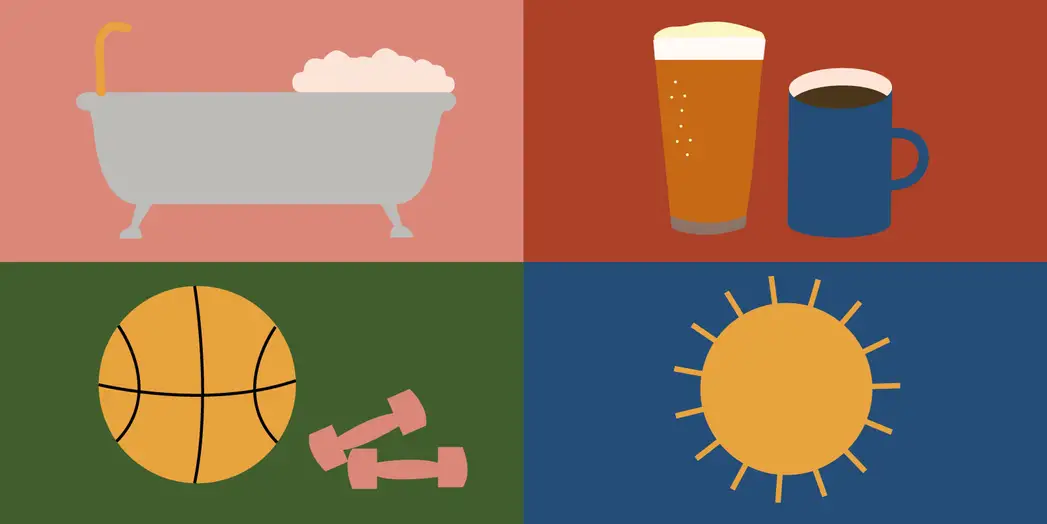
6. Put down your electronic devices
Keep your phones, tablets and screens out of your bedroom and try to limit how much you look at them in the run-up to bedtime. Evenings should be about relaxing, so put your screens to bed before you go to bed.
Work emails can wait until work time, social media will still be there when you wake up and maybe try saving that film you wanted to watch for a day when you’ve got plenty of time.
7. Look at your light exposure
Ideally, you want your exposure to artificial lights to mimic natural light. So bright light is fine during the morning and hours of daylight, but as evening falls, try to reduce your light exposure. Limit screen time, dim the houselights.
8. Enjoy some natural light
Exposure to sunlight is the ideal way to keep your body clock synchronised to the daylight. This helps you to feel alert during the daylight hours and feel sleepy as bedtime approaches. Aim to spend a little time outside each day if you can.
If possible, getting out in morning light is ideal but any daylight exposure is a great way to boost your mood and prepare you for the day ahead. You could even consider using a light-based alarm clock as these wake you up with a light that mimics the rising sun.
9. Take care of your mental health
Stress, anxiety and depression can all interfere with your sleep. If your head is swimming with negative thoughts each night, it can be really hard to fall asleep. And when you don’t get enough sleep, your mental health can be affected.
If you feel like your mental health is being impacted by your lack of sleep, or your lack of sleep is affecting how you feel, speak to your healthcare provider. Mental health and sleep go hand-in-hand, taking steps to improve one can often improve the other.
10. Don’t be afraid to ask for help
Like we’ve said: sleep deprivation is treatable. It’s not something you should just try to live with and it will affect your health if left untreated.
If you’ve gone through all of our sleep advice but you’re still not sleeping well, you may need a little more help to get to the root of your sleep deprivation. It could be that your sleep deprivation is due to a sleep disorder.
Sleep deprivation can feel very similar to insomnia, but they’re not the same thing. With sleep deprivation you’re not giving yourself sufficient time to get the sleep you require. With insomnia, even when you do give yourself ample time to sleep, you can’t sleep.
If you’re worried about your lack of sleep, why not take our short sleep questionnaire? Answer a few short questions and we’ll quickly be able to advise you on the best way to get your sleep back on track.
At our online sleep clinic, we can help you identify what’s coming between you and the sleep you need. We’ll show you techniques that will allow you to control and maintain good sleep.
You can complete the entire programme entirely online, from the comfort of your own home, but this doesn’t mean you’ll be without support. Your dedicated team of sleep coaches are highly-trained, with years of experience and will be on hand every step of the way. They’ll be there to offer advice and guidance, to give you that extra dose of motivation or cheer on your latest success.
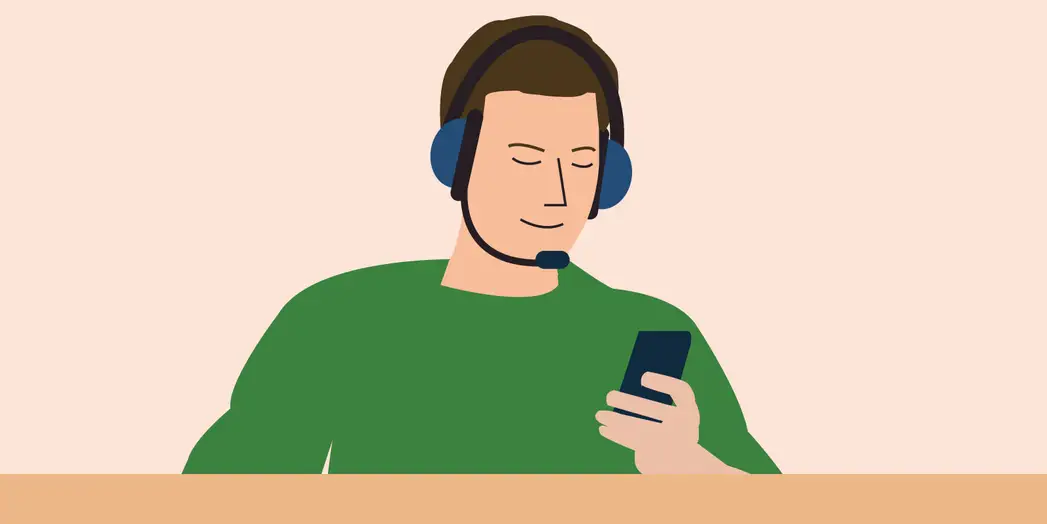
Summary
Understanding the importance of sleep and making your sleep a priority is the best way to tackle sleep deprivation.
- When you’re deprived of sleep, your mind and body don’t function at their best.
- Chronic sleep deprivation increases your overall risk of premature death.
- Many health problems caused by sleep deprivation can be reversed by getting adequate sleep.
- Simple changes to your lifestyle and evening routine can be all you need to boost how much sleep you get.
- If you need more help getting to the root of your sleep deprivation, Sleepstation can help.
References
- Sleeping dangerously: 7.5 million Brits have under five hours’ a night [Internet]. DLG Corporate Corporate Website. [cited 2023Mar6]. Available here. ↩︎
- The impact of sleep deprivation on your mind [Internet]. Nuffield Health. [cited 2023Mar6]. Available here. ↩︎
- Consensus Conference Panel, Watson NF, Badr MS, Belenky G, Bliwise DL, Buxton OM et al. Joint Consensus Statement of the American Academy of Sleep Medicine and Sleep Research Society on the recommended amount of sleep for a healthy adult: Methodology and discussion. J Clin Sleep Med 2015; 11: 931–952. ↩︎
- Wake up call: Global sleep satisfaction trends – Philips [Internet]. Available here. (accessed 17 Feb 2023). ↩︎
- Insufficient sleep: Definition, epidemiology, and adverse outcomes. Uptodate.com. [Internet] Available here. (accessed 17 Feb 2023) ↩︎
- The international classification of sleep disorders: Diagnostic and coding manual. 2nd ed. American Academy of Sleep Medicine, 2001. ↩︎
- Liu S, Wang X, Zheng Q, Gao L, Sun Q. Sleep deprivation and central appetite regulation. Nutrients 2022; 14: 5196. ↩︎
- Waters F, Chiu V, Atkinson A, Blom JD. Severe sleep deprivation causes hallucinations and a gradual progression toward psychosis with increasing time awake. Front Psychiatry 2018; 9: 303. ↩︎
- Chattu VK, Manzar MD, Kumary S, Burman D, Spence DW, Pandi-Perumal SR. The global problem of insufficient sleep and its serious public health implications. Healthcare (Basel) 2018; 7: 1. ↩︎
- Nagai M, Hoshide S, Kario K. Sleep duration as a risk factor for cardiovascular disease – a review of the recent literature. Curr Cardiol Rev 2010; 6: 54–61. ↩︎
- Covassin N, Singh P. Sleep duration and cardiovascular disease risk: Epidemiologic and experimental evidence. Sleep Med Clin 2016; 11: 81–89. ↩︎
- McAlpine CS, Kiss MG, Rattik S, He S, Vassalli A, Valet C et al. Sleep modulates haematopoiesis and protects against atherosclerosis. Nature 2019; 566: 383–387. ↩︎
- Chen J-C, Brunner RL, Ren H, Wassertheil-Smoller S, Larson JC, Levine DW et al. Sleep duration and risk of ischemic stroke in postmenopausal women. Stroke 2008; 39: 3185–3192. ↩︎
- Mullington JM, Simpson NS, Meier-Ewert HK, Haack M. Sleep loss and inflammation. Best Pract Res Clin Endocrinol Metab 2010; 24: 775–784. ↩︎
- 1 Besedovsky L, Lange T, Born J. Sleep and immune function. Pflugers Arch 2012; 463: 121–137. ↩︎
- 1 Besedovsky L, Lange T, Born J. Sleep and immune function. Pflugers Arch 2012; 463: 121–137. ↩︎
- von Ruesten A, Weikert C, Fietze I, Boeing H. Association of sleep duration with chronic diseases in the European Prospective Investigation into Cancer and Nutrition (EPIC)-Potsdam study. PLoS One. 2012;7(1):e30972. ↩︎
- Chen Y, Tan F, Wei L, Li X, Lyu Z, Feng X et al. Sleep duration and the risk of cancer: a systematic review and meta-analysis including dose-response relationship. BMC Cancer 2018; 18: 1149. ↩︎
- Kakizaki M, Inoue K, Kuriyama S, Sone T, Matsuda-Ohmori K, Nakaya N et al. Sleep duration and the risk of prostate cancer: the Ohsaki Cohort Study. Br J Cancer 2008; 99: 176–178. ↩︎
- Kakizaki M, Kuriyama S, Sone T, Ohmori-Matsuda K, Hozawa A, Nakaya N et al. Sleep duration and the risk of breast cancer: the Ohsaki Cohort Study. Br J Cancer 2008; 99: 1502–1505. ↩︎
- Jiao L, Duan Z, Sangi-Haghpeykar H, Hale L, White DL, El-Serag HB. Sleep duration and incidence of colorectal cancer in postmenopausal women. Br J Cancer 2013; 108: 213–221. ↩︎
- Cooper CB, Neufeld EV, Dolezal BA, Martin JL. Sleep deprivation and obesity in adults: a brief narrative review. BMJ Open Sport Exerc Med 2018; 4: e000392. ↩︎
- Cappuccio FP, Taggart FM, Kandala N-B, Currie A, Peile E, Stranges S et al. Meta-analysis of short sleep duration and obesity in children and adults. Sleep 2008; 31: 619–626. ↩︎
- Knutson KL. Impact of sleep and sleep loss on glucose homeostasis and appetite regulation. Sleep Med Clin 2007; 2: 187–197. ↩︎
- Dorrian J, Centofanti S, Smith A, McDermott KD. Self-regulation and social behavior during sleep deprivation. Prog Brain Res 2019; 246: 73–110. ↩︎
- Killgore WDS. Effects of sleep deprivation on cognition. Prog Brain Res 2010; 185: 105–129. ↩︎
- Horne JA. Human sleep, sleep loss and behaviour: Implications for the prefrontal cortex and psychiatric disorder. Br J Psychiatry 1993; 162: 413–419. ↩︎
- Babson KA, Trainor CD, Feldner MT, Blumenthal H. A test of the effects of acute sleep deprivation on general and specific self-reported anxiety and depressive symptoms: an experimental extension. J Behav Ther Exp Psychiatry 2010; 41: 297–303. ↩︎
- Garbarino S, Lanteri P, Bragazzi NL, Magnavita N, Scoditti E. Role of sleep deprivation in immune-related disease risk and outcomes. Commun Biol 2021; 4: 1304. ↩︎
- Bubu OM, Brannick M, Mortimer J, Umasabor-Bubu O, Sebastião YV, Wen Y et al. Sleep, cognitive impairment, and Alzheimer’s disease: A systematic review and meta-analysis. Sleep 2017; 40. doi:10.1093/sleep/zsw032. ↩︎
- Chattu VK, Manzar MD, Kumary S, Burman D, Spence DW, Pandi-Perumal SR. The global problem of insufficient sleep and its serious public health implications. Healthcare (Basel) 2018; 7: 1. ↩︎
- Hafner M, Stepanek M, Taylor J, Troxel WM, van Stolk C. Why sleep matters — the economic costs of insufficient sleep: A cross-country comparative analysis. Rand Health Q 2017; 6: 11. ↩︎
- Klauer SG, Dingus TA, Neale VL, Sudweeks JD, Ramsey DJ. The impact of driver inattention on near-crash/crash risk: An analysis using the 100-car naturalistic driving study data. US Dept of Transport. 2006. ↩︎

